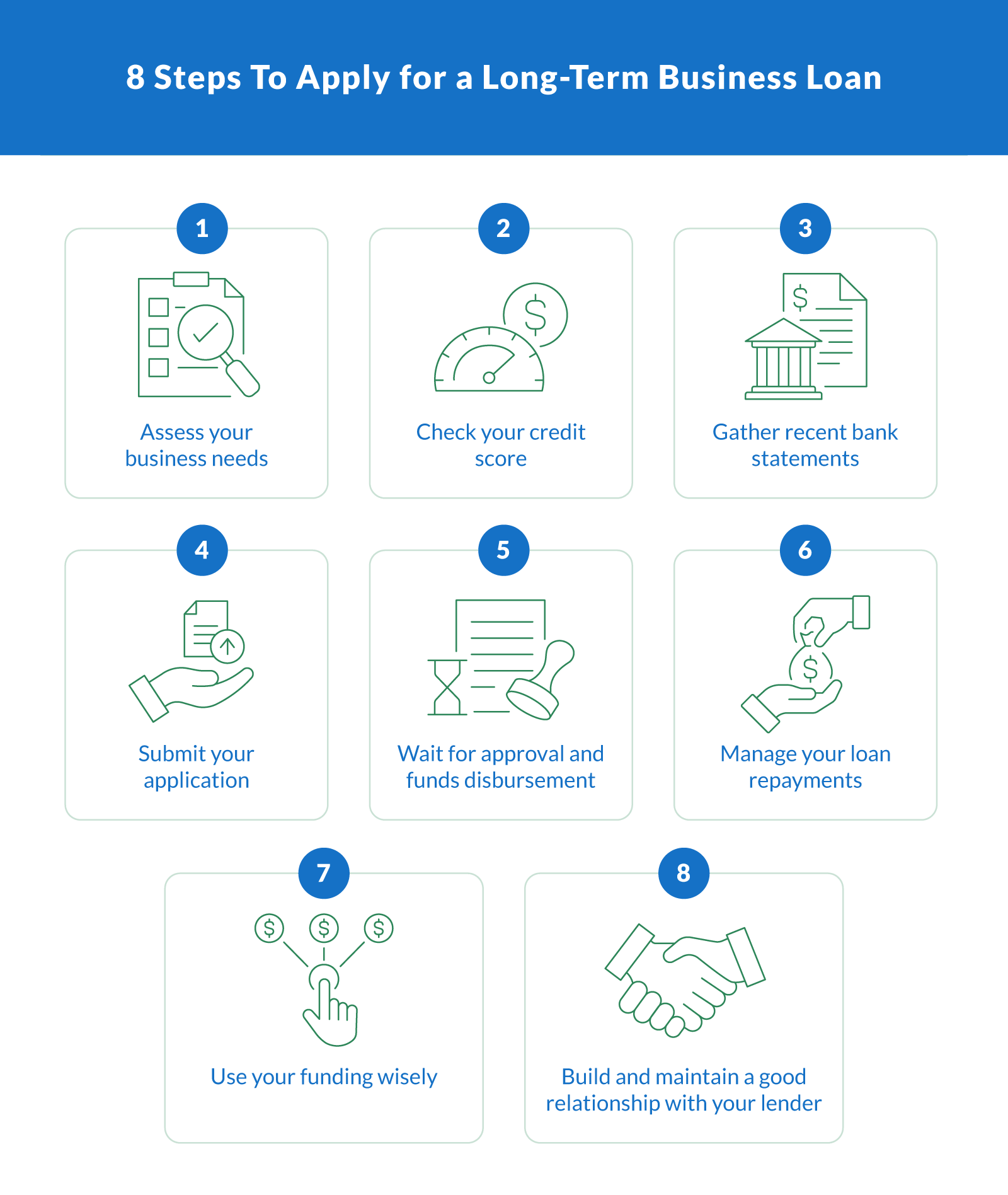Why Choose Long-Term Business Loans?
As a small business owner, you're always on the lookout for opportunities to grow and expand. That's where long-term business loans come in. These loans can help you achieve your business goals by providing you with the funds you need to make strategic investments, such as:
Purchasing new equipment
Expanding or renovating your premises
Launching new product lines or services
Hiring top talent
Consolidating high-interest debt
Long-term business loans typically have repayment periods ranging from three to 10 years, and in some cases, even up to 25 years. This longer repayment period means that you can spread out the cost of your investment, keeping your monthly payments low and manageable. Plus, with competitive interest rates, you can save money over the life of the loan compared to short-term financing options.

The Nuts and Bolts of Long-Term Business Loans
So, how do long-term business loans work? These loans provide you with a lump sum of capital that you'll repay over an agreed-upon period, usually ranging from three to 10 years or more. The repayments are typically made on a monthly basis and consist of fixed, equal payments. This means that you'll know exactly how much you need to set aside each month for your loan repayments.
Most long-term business loans follow an amortization schedule, meaning that you'll be paying off more interest at the beginning of the loan and gradually paying off more principal as the loan progresses. This structure helps keep your monthly payments predictable and manageable.
Choosing the Right Long-Term Business Loan for Your Small Business
There's no one-size-fits-all financing solution when it comes to long-term business loans. The right small business loan will depend on your specific needs and circumstances. Here are some of the most popular long-term business loan options available:
SBA Loans
SBA 7(a) and 504 loans are government-backed loans from the U.S. Small Business Administration that offer some of the most attractive terms and conditions for small businesses. These loans can provide funding of up to $5 million, with repayment periods of up to 10 years for working capital and equipment, and up to 25 years for larger assets like real estate.
How to qualify: For SBA loan eligibility, you'll generally need to have been in business for at least two years and have strong annual revenue. A solid personal credit score (typically 690 or higher) is also a must, and you may need to provide collateral.
Traditional Bank Loans
Banks offer long-term business loans with repayment terms usually ranging from five to seven years. These loans often come with lower interest rates than those offered by alternative lenders, but they can be more challenging to qualify for.
How to qualify: To secure a long-term bank loan, you'll likely need to be an established business with strong annual revenue and a good personal credit score (usually in the 700s or higher). Collateral may also be required.
Online Business Loans
If you're looking for a more flexible lending option, consider long-term business loans from Clarify Capital. We offer excellent repayment terms and can provide funding more quickly than traditional banks or SBA loans.
How to qualify: Clarify Capital has less stringent requirements than traditional banks. You need to have a minimum monthly revenue of $10,000 and a minimum credit score of over 600 to qualify.
Now that you've got a good grasp of the various types of long-term business loans available, let's dive into how to choose the right loan for your small business.
When Long-Term Business Loans Make the Most Sense
Long-term business loans aren't ideal for every business, but they can be a powerful tool when used strategically. Here are some scenarios where they make the most sense:
Expanding your business. If you're opening a new location, adding employees, or investing in infrastructure, long-term funding helps spread costs and preserve cash flow.
Investing in big-ticket items. If your loan amount is sizable (e.g., for real estate or large equipment), a longer repayment schedule makes repayment more manageable.
Improving working capital over time. Rather than relying on short bursts of capital, long-term loans can support steady growth.
Refinancing high-interest debt. Swapping expensive short-term financing for a longer-term loan through a refinance can reduce monthly payments and free up capital.
Pursuing long-term business goals. These loans work well when the payoff from your investment won't be immediate (e.g., product development, training, or new market entry).
By aligning your business goals with the right loan structure, you can position your company for smart, sustainable growth.



